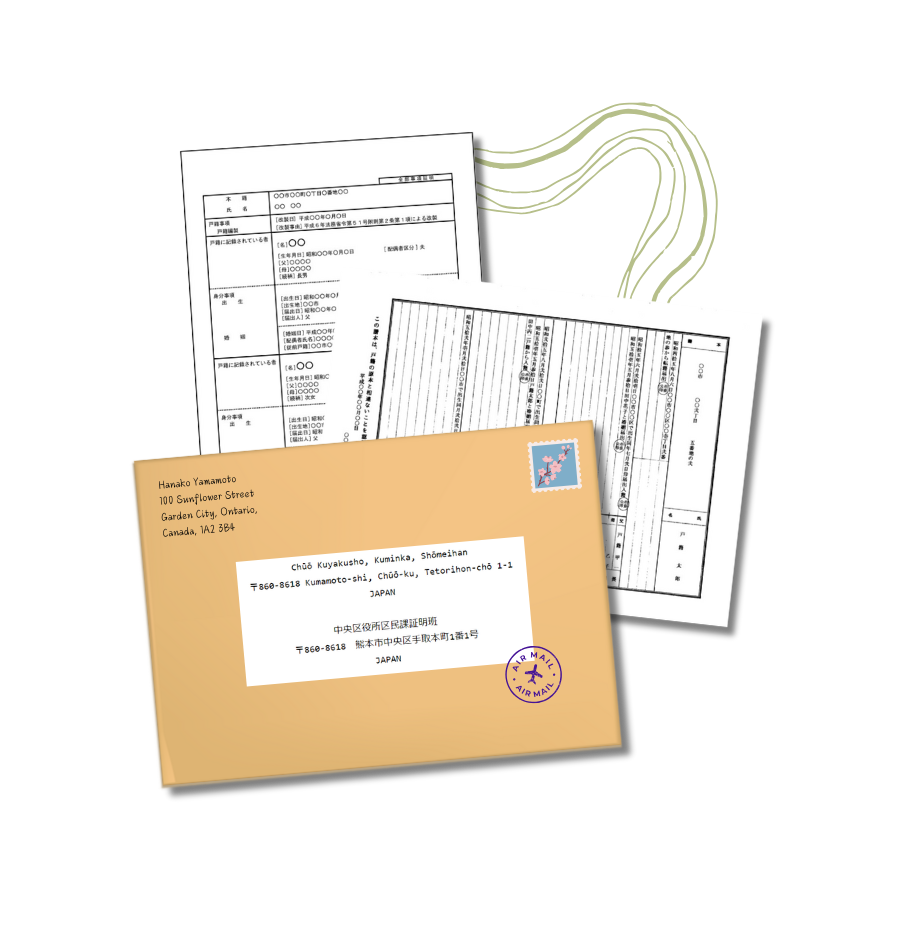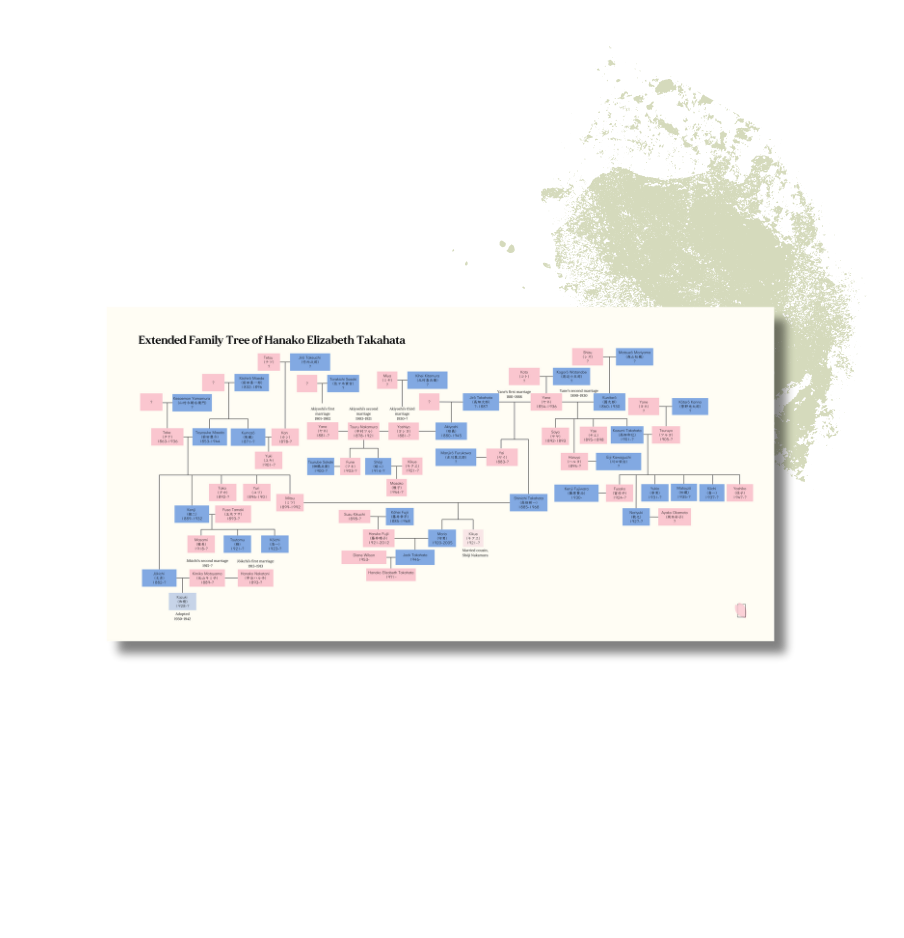
Koseki Services
Request, Translate, and Discover Your Japanese Family History
Your koseki holds the key to your family’s story. Let’s explore it together.
Whether you’re hoping to translate koseki, request them from Japan, or build a family tree using them, Kokoro Communications is here to guide you through the process with care, clarity, and cultural sensitivity.
You don’t need to speak Japanese or know every family detail—just a sense of curiosity and a desire to reconnect.
Start with a free guide: Koseki Decoded
Not sure where to begin? This 9-page PDF introduces you to the history, structure, and vocabulary of koseki—and how they can help you understand your family’s story.:
✓ What a koseki is and how it works
✓ Key vocabulary and formatting across eras
✓ Tips for reading older, handwritten versions
✓ Differences between new and old registers
✓ Real examples to help you understand your own documents
Koseki Translation Services
Translating koseki isn’t like translating everyday documents. It requires specialized historical knowledge, advanced kanji skills, and sensitivity to both linguistic nuance and cultural context.
When you work with me, you can expect:
Personalized translation plans: I tailor the service to your needs.
Faithful formatting: I keep the structure aligned with the original koseki so you can trace each detail.
Cultural and linguistic insight: My background as a bilingual, bicultural linguist means you're getting more than just a word-for-word translation.
Notes and extras: I include alternate readings, historical place names, legibility notes, and more.
Complimentary revisions: One week of free revisions after delivery.
Koseki Request Support
Need help requesting a koseki from Japan? I offer three flexible tiers of support:
Basic Plan – Bilingual form assistance only. You handle the rest.
Standard Plan – Support until mailing. I help with documents, forms, and guidance up to the submission step.
Premium Plan – Full service. I look after the whole process start to finish—no guesswork required.
Optional Add-On: I can coordinate your payment to the municipal office, if needed.
Who can request a koseki?
If you have Japanese ancestry and can prove a direct relationship (e.g., parent, grandparent, or great-grandparent), you may be eligible to request their koseki—even if they passed away long ago. I'll guide you through what's needed.
Koseki Family Tree Building
Sometimes it’s hard to understand how everyone in the koseki connects. I can build a clear, visually organized family tree based on your documents—perfect for both personal understanding and sharing with others.
Please note: This service is available only to clients who have requested a koseki translation from me. I do not offer family tree building as a stand-alone service.
What can you do with the information from your koseki?
Your koseki is more than a document—it’s a bridge to your past and your future. With it, you can:
Reconnect with lost branches of your family
Preserve your family history for children or grandchildren
Document your family’s history for future generations
Renew a Japanese passport from abroad
Apply for special Nikkei VISAs (Nisei, Sansei, Yonsei)
Whether you’re searching for identity, preparing documents for a visa or passport renewal, or simply curious about your roots, your family’s koseki opens a meaningful window into the past—and helps ensure it is preserved for the future.
“Sachi translated historical and family documents that required a skill set and knowledge that she clearly possessed. She was thorough and her attention to detail was very important to this work. She was flexible and communicated very well. She completed the work with an absolutely high quality result.”
— Bill Hamade, Family Historian and Archivist
“Sachi Kikuchi of Kokoro Communications is absolutely fabulous! I would absolutely recommend [her] for any and all of my Japanese translations! I am still waiting on my paternal grandmother's koseki and I will DEFINITELY be asking Sachi to translate those, too! Sachi, thank you for bringing to life my confusing, beautiful paternal family tree!”
— Lisa Terao Blum
“Sachi was an absolute pleasure to work with. When working with archival documents she was always clear, detail oriented and efficient, she was also open and sensitive to the project and priorities at hand. I look forward to working with her again.”
— Randall Okita, Director
“Sachi has the full set of skills to support anyone seeking to obtain a Japanese family register (koseki) for their ancestor(s). If you only need Sachi’s koseki translation skills, her translations reflect someone who handles the nuances of alternative kanji readings well, has the diligence to translate old and difficult to read documents, and is knowledgeable of Japanese culture.”
— Dave from Ohio
What to Expect: Working Together
1. Reach Out and Share Your Goals
After you contact me, I’ll ask a few simple questions to understand what you’re hoping to discover or accomplish. Whether you’re seeking a translation, requesting a new koseki, or piecing together family connections, we’ll start with a conversation.
2. Build a Plan Together
Based on your needs and preferences, I’ll recommend the most suitable service and prepare a personalized proposal and service agreement. You’ll also receive clear guidance on what documents or information are needed to move forward.
3. Start the Project
Once everything is confirmed, I begin the translation or support process. I’ll keep you updated along the way, and check in if anything needs clarification.
4. Delivery and Revisions
When the project is complete, I’ll deliver your documents in an accessible format and answer any follow-up questions. Complimentary revisions are available for one week in case you’d like to tweak anything.
Learn more about koseki
We regularly share free videos on YouTube and social media that explore different aspects of koseki—perfect for those who want to learn more before diving in.
You can also explore the full YouTube playlist!
FAQs
-
A koseki is a Japanese family registry used for civil documentation. It lists life events (births, deaths, marriages, etc.) and proves Japanese citizenship. Learn more in my free guide or on my YouTube channel!
-
If you have Japanese ancestry, you can request the koseki of direct ancestors (parents, grandparents, great-grandparents) with proof of relationship.
-
Yes—I translate both Japanese ⇒ English and English ⇒ Japanese.
-
Today, I focus on koseki translation. However, in the 20+ years of being a translator, I’ve also worked in disaster science, personal stories, medical research, film, and cultural documentation.
-
Sometimes! Please contact me to ask about your needs.
-
You can download my free koseki guide (it’s quite throrough!), and explore my YouTube Playlist or watch these featured videos:
Start your journey.
Understanding your koseki is the first step to unlocking your family’s story.
Or request a translation quote here.





